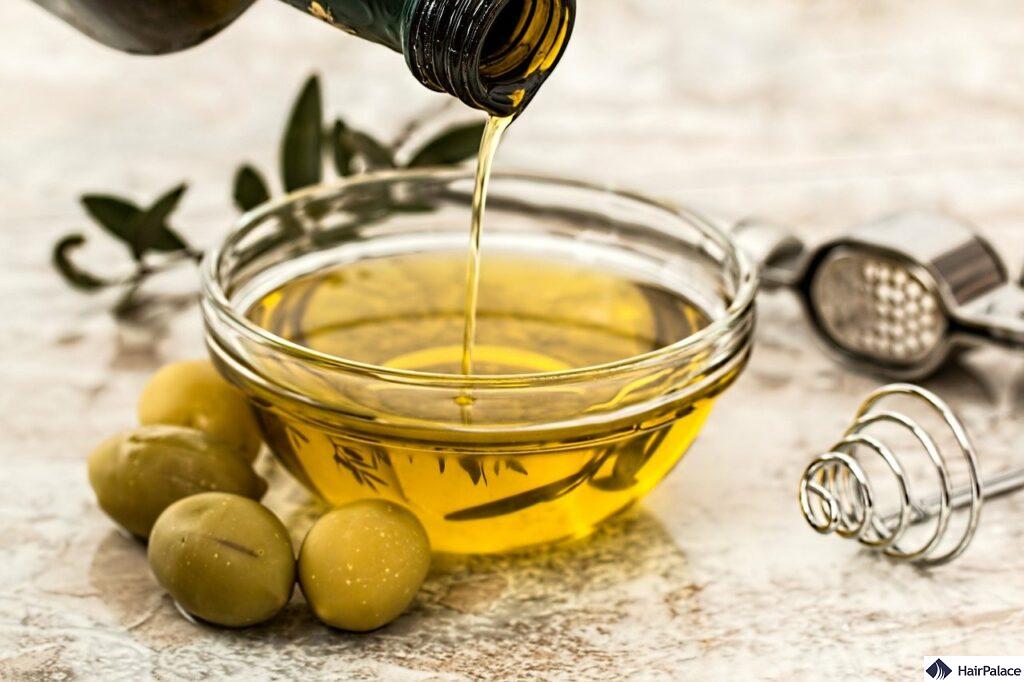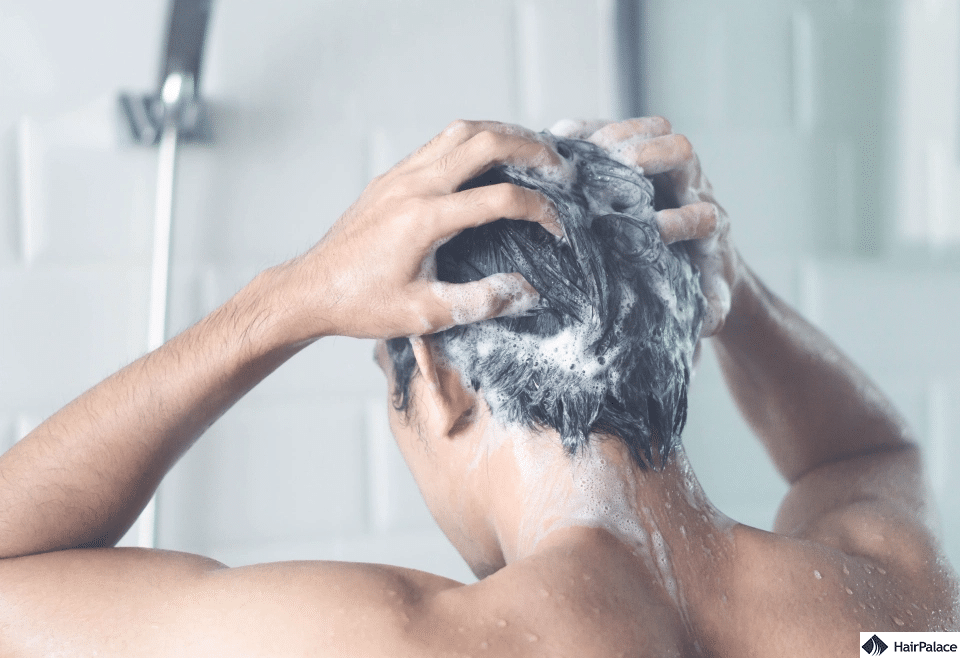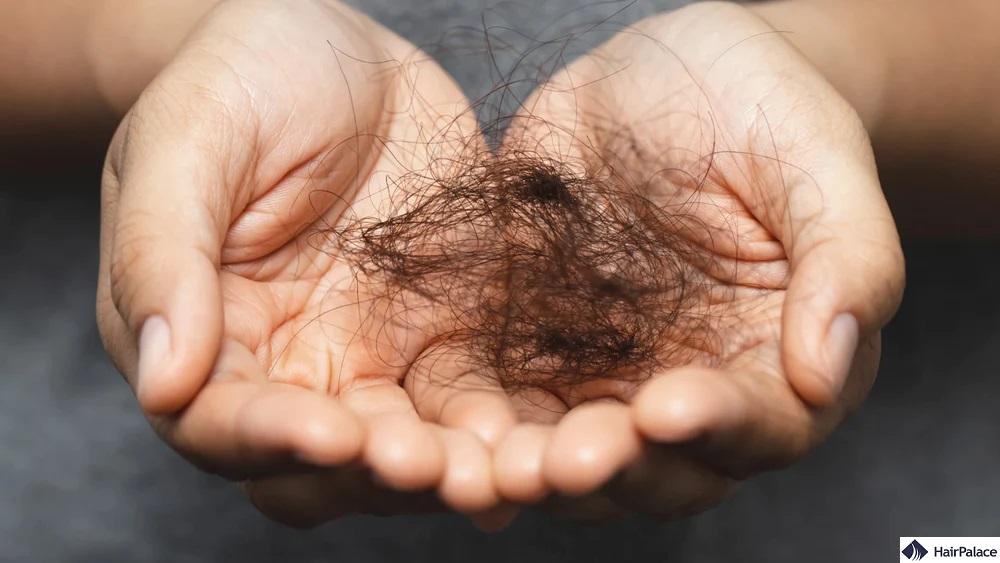Marula Oil for Hair Growth: Does it Work?

Marula oil is increasingly recognized for its remarkable benefits as a hair product.
This nutrient-rich natural oil is an excellent choice for enhancing hair growth and overall health.
In this article, we explore the multifaceted benefits of marula oil for hair growth, how to incorporate it into your hair care routine, and tips to maximize hair benefits.
Whether you’re struggling with dryness, damage, or slow hair growth, marula oil might be the natural solution you’ve been searching for.
- What is marula oil for hair?
- What are the benefits of marula oil for hair?
- How to use marula oil for hair growth
- What to watch out for when using marula oil?
What is marula oil for hair?

Marula oil is a nourishing extract from the nuts of the marula tree, which is native to Southern Africa.
It is highly valued for its rich antioxidant content and essential fatty acids, making it an excellent addition to your hair routine.
Marula oil can be used directly on the hair and scalp or as an ingredient in shampoos, conditioners, and hair treatments.
It’s especially beneficial for those looking to add hydration, shine, and protection to brittle hair.
Is marula oil good for hair?
It is a highly beneficial oil for various hair types and needs.
Whether you have oily hair or fine hair, marula oil is the perfect natural remedy for your problems.
It’s a versatile and effective choice for those looking to improve their hair’s moisture, strength, and appearance.
What are the benefits of marula oil for hair?

Marula oil offers numerous benefits for hair due to its rich nutrient profile and protective properties. Here are some detailed benefits.
- Deep Moisturization: Marula oil is predominantly composed of linoleic acid, a monounsaturated fatty acid that is highly effective at sealing in moisture and hydrating the hair deeply.
- Non-Greasy: Despite its rich moisturizing properties, marula oil is lightweight and absorbs quickly into the hair, providing hydration without leaving a greasy residue.
- Vitamin C and E: Marula oil is packed with antioxidants like vitamins C and E, which help protect the hair from oxidative stress caused by environmental factors.
- Prevents Damage: Helps maintain the integrity of the hair by preventing damage from free radicals, thereby keeping the hair healthy and vibrant.
- Antimicrobial Properties: The oil’s antimicrobial properties can help manage scalp conditions by balancing bacterial levels on the scalp, preventing dandruff and other scalp infections.
- Soothing Effect: Marula oil has a soothing effect on the scalp, reducing irritation and dryness.
- Smooths Hair Cuticles: The oil’s emollient properties help to smooth hair cuticles, making strands look shiny and reducing frizz.
- Strengthens Hair: The nutrients in marula oil can penetrate deep into the hair’s cortex, improving strength and elasticity. This reduces the likelihood of breakage and makes hair more resilient.
Given its wide range of benefits, marula oil is a valuable addition to any hair care routine.
It is particularly useful for those looking to enhance moisture and protect hair from environmental damage.
Additionally, marula oil helps improve the overall health and appearance of the hair.
How to use marula oil for hair growth

Marula oil can be an effective addition to your hair care routine to promote hair growth and improve overall hair health.
Here’s how you can use marula oil for hair growth:
1. Scalp Massage
Warm a few drops of marula oil between your palms and gently massage it into your scalp.
This stimulates blood circulation to the hair follicles, encouraging growth and nourishing the roots.
Do this 2-3 times a week, preferably before bedtime, allowing the oil to work overnight.
2. Pre-Shampoo Treatment
Apply marula oil to your dry scalp and hair before you wash it. Coat your hair from roots to tips and massage the scalp gently.
This protects your hair from drying out during shampooing and minimizes damage while detangling.
Leave it on for at least 30 minutes or overnight for deeper conditioning.
3. Mix with Shampoo or Conditioner

Add a few drops of marula oil to your regular shampoo or conditioner to enhance its nourishing properties.
This method helps to deliver the moisturizing and strengthening benefits of marula oil directly during your regular hair wash routine.
4. Leave-in Conditioner
After shampooing and conditioning, apply a small amount of marula oil to damp hair before styling. Focus on the ends rather than the roots to avoid a greasy look.
It helps detangling, adds shine, and provides extra protection from environmental damage throughout the day.
5. Hair Mask Enhancement
Add several drops of marula oil to your favourite hair mask mix. Apply the mixture to your hair, concentrating on the ends where damage is most frequent.
Use this enhanced mask once a week for deep conditioning.
6. Treatment for Split Ends
Rub a small amount between your fingers and lightly apply it to the ends of your hair.
Regular application helps prevent and treat split ends, reducing the need for frequent trims and allowing hair to grow longer and healthier.
7. Hot Oil Treatment
Warm the marula oil in a heat-safe container and apply it to your hair and scalp. Wrap your hair in a hot towel to enhance penetration.
Leave it for about 30 minutes before washing it out.
A hot oil treatment can deeply condition the hair, improve elasticity, and promote a healthy scalp.
Using marula oil in these ways can help nourish each hair shaft, protect it from damage, and maintain a healthy environment conducive to hair growth.
Regular use, combined with a balanced diet and proper hair care habits, will promote stronger, healthier hair growth over time.
What to watch out for when using marula oil?

While marula oil is generally safe and beneficial for most people, there are some potential drawbacks you should be mindful of when incorporating it into your hair care routine.
1. Allergic Reactions
Although rare, some people may be allergic to marula oil. Signs of an allergic reaction include redness, itching, swelling, or rashes.
Always perform a patch test on a small area of your skin, such as the inside of your elbow, before using marula oil extensively.
Wait for 24 hours to ensure there is no adverse reaction.
2. Oiliness and Greasiness
It is lightweight compared to other oils, but using too much can still leave your hair feeling greasy and heavy.
Apply it sparingly, especially if you have fine or thin hair. Start with just a few drops and adjust as needed based on how your hair responds.
3. Clogged Pores
Like any oil, excessive or improper application of marula oil could potentially clog scalp pores, especially if not washed out properly.
Use it in moderation and ensure thorough cleansing with a clarifying shampoo if you use oils regularly.
4. Interaction with Other Products
It can interact with other products in your hair care routine, leading to build-up. This can weigh down your hair and reduce its natural volume.
Check the compatibility of marula oil with other products you use. It’s best used with products that are similarly light and non-comedogenic.
5. Staining of Fabrics
It can stain clothes, pillowcases, or other fabrics if used in large amounts or if the hair is not allowed to absorb the oil before contact.
Use an old towel or wear a shower cap after applying marula oil if you plan to leave it in overnight, especially if you have sensitive skin.
6. Quality of Oil
The effectiveness and safety of marula oil depend heavily on its quality. Low-quality or adulterated oils may not offer the same benefits and could even harm your hair follicles and scalp.
Ensure you buy pure, high-quality cold-pressed marula oil from reputable suppliers to avoid contaminants and additives.
By paying attention to these considerations, you can safely incorporate marula oil into your hair care regimen and enjoy its many benefits without unwanted side effects.
- Oh JY, Park MA, Kim YC. Peppermint Oil Promotes Hair Growth without Toxic Signs. Toxicol Res. 2014 Dec;30(4):297-304. doi: 10.5487/TR.2014.30.4.297. PMID: 25584150; PMCID: PMC4289931.https://www.ncbi.nlm.nih.gov/pmc/articles/PMC4289931/
- Kumari KMU, Yadav NP, Luqman S. Promising Essential Oils/Plant Extracts in the Prevention and Treatment of Dandruff Pathogenesis. Curr Top Med Chem. 2022;22(13):1104-1133. doi: 10.2174/1568026622666220531120226. PMID: 35642120.https://pubmed.ncbi.nlm.nih.gov/35642120/


